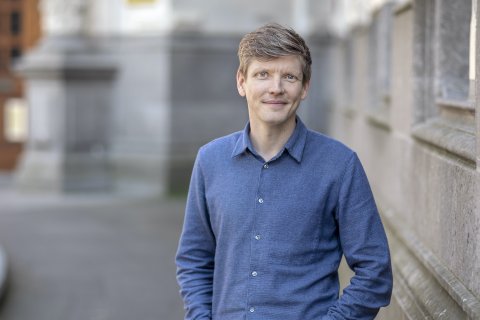Multidisciplinarity as a research object: an interview with Ilona Domen and Jarno Hoekman
What are the pros and cons of multidisciplinary research? Do researchers feel appreciated for their multidisciplinary work? And what type of research best suits a multidisciplinary approach? Ilona Domen, postdoctoral researcher at the Utrecht Young Academy, studies the promises and pitfalls of multidisciplinary research.

Monodisciplinary, multidisciplinary, interdisciplinary or transdisciplinary are frequently used terms within academia. Ilona explores the meaning of these terms for researchers within Utrecht University and the University Medical Center Utrecht (UMC Utrecht), which type of research is suitable for a multidisciplinary approach and whether researchers feel appreciated for their multidisciplinary collaborations.
Through questionnaires and interviews, Ilona gathers data from researchers within Utrecht University and the UMC Utrecht. Several members of the Utrecht Young Academy supervise her project, including dr. Jarno Hoekman, assistant professor in innovation studies. In this interview, Ilona and Jarno elaborate on their project, in which they engage with multidisciplinarity from a research perspective. “Within this project, we do not assume all researchers should become more multidisciplinary”, Jarno explains. “We study which researchers do or do not strive for interdisciplinarity, and in which cases this runs smoothly or could be supported more. From a distance, we analyse multidisciplinarity as a research object.”

What are possible barriers?
There are different forms of multi- or interdisciplinary teamwork. In some projects there is a clear task division and each researcher works from their own disciplinary expertise, leading to the combination of knowledge elements. Collaborations in other projects cross the boundaries between disciplines, as researchers learn from each other’s disciplines and integrate this knowledge.
"Obstacles that are mentioned regularly include communication or speaking the same language."
Collaborations of the latter form can encounter several barriers, Ilona explains. “Obstacles that are mentioned regularly include communication or speaking the same language. Making sure everyone in a multidisciplinary project understands what is meant can take a lot of time. People often feel as though they do not have this time, because they would like to start the project as quickly as possible. This can result in miscommunication later in the project, forcing you to go back to the start and figure out if everyone is on the page.”
Which projects are suited for a multidisciplinary approach?
Ilona studies which type of research can benefit from a multidisciplinary approach. It is obvious that collaboration is necessary when approaching global issues and societal challenges, such as climate change or the COVID-19 pandemic. The Centre for Unusual Collaborations shows that unexpected and surprising topics can also benefit from multidisciplinary teamwork.
Ilona’s project also investigates the personality traits of academics who engage in multidisciplinary collaborations using the Big Five personality traits. The five dimensions are extraversion, agreeableness, openness to experience, conscientiousness and neuroticism. Several aspects seem to be important for multidisciplinary teamwork, although they can contradict. Ilona explains that both openness to new experiences as well as conscientiousness are important in coordinating the collaboration. “Both flexibility and organisational skills are important.”
Making sure everyone in a multidisciplinary project understands what is meant can take a lot of time.
Recognition and Rewards
Furthermore, Ilona examines the recognition and rewards that multidisciplinary researchers receive within the university. To what extent are they supported, and does this happen naturally or does this require more attention? From whom would academics like more recognition or rewards? In what form? Jarno explains possible barriers for early career researchers in multidisciplinary collaborations. “Perhaps you need a high impact publication for your career or a specific grant in your field of study. Will you receive the same recognition and rewards from your organisation if you design your research process in a different, multidisciplinary way?”
Ilona gathers data for this project through a survey for all researchers at Utrecht University and UMC Utrecht. Would you like to share your experience with multidisciplinary research? The questionnaire is available until June 18.

